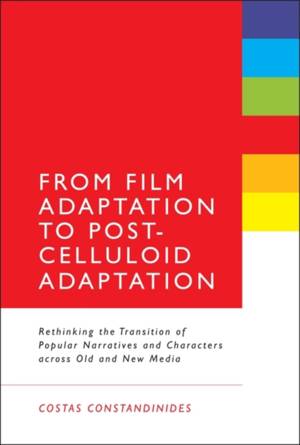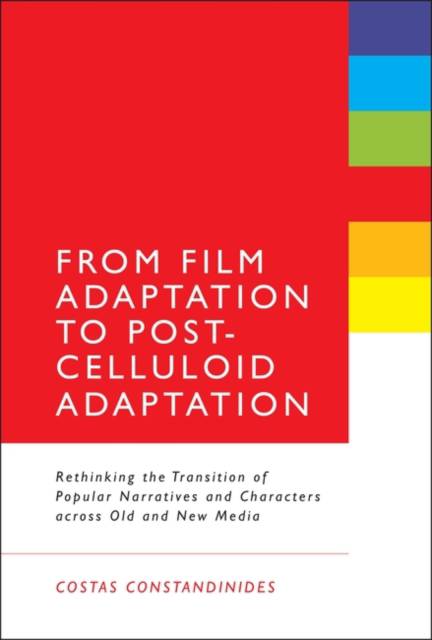
Bedankt voor het vertrouwen het afgelopen jaar! Om jou te bedanken bieden we GRATIS verzending (in België) aan op alles gedurende de hele maand januari.
- Afhalen na 1 uur in een winkel met voorraad
- In januari gratis thuislevering in België
- Ruim aanbod met 7 miljoen producten
Bedankt voor het vertrouwen het afgelopen jaar! Om jou te bedanken bieden we GRATIS verzending (in België) aan op alles gedurende de hele maand januari.
- Afhalen na 1 uur in een winkel met voorraad
- In januari gratis thuislevering in België
- Ruim aanbod met 7 miljoen producten
Zoeken
From Film Adaptation to Post-Celluloid Adaptation
Rethinking the Transition of Popular Narratives and Characters Across Old and New Media
Costas Constandinides
Hardcover | Engels
€ 271,45
+ 542 punten
Uitvoering
Omschrijving
The main corpus of film adaptation thus far has focused on films based on canonical literature. From Film Adaptation to Post-Celluloid Adaptation takes the next logical step by discussing the emerging modes of film adaptation from older media to new, mainly focusing on the computer-generated reconstructions of popular narratives an haracters along with other forms of convergence such as the Internet. While New Media is a broa oncept, the book will concentrate on the ways digital technology is being used in the encoding of films and discuss the ways this shift can be debated from a theoretical perspective. Though the discussion is framed through the new media lens, the work will not exclude a broader understanding of New Media which refers to video games, official websites and interactivity so as to examine how the visual style of contemporary films is dispersed across, and influenced by, other media. Discussing films like Minority Report, King Kong, 300 and Wanted in relation to Film Adaptation theory, the work aims to challenge and rework the definition of adaptation.
Specificaties
Betrokkenen
- Auteur(s):
- Uitgeverij:
Inhoud
- Aantal bladzijden:
- 176
- Taal:
- Engels
Eigenschappen
- Productcode (EAN):
- 9781441103802
- Verschijningsdatum:
- 21/10/2010
- Uitvoering:
- Hardcover
- Formaat:
- Genaaid
- Afmetingen:
- 156 mm x 239 mm
- Gewicht:
- 430 g

Alleen bij Standaard Boekhandel
+ 542 punten op je klantenkaart van Standaard Boekhandel
Beoordelingen
We publiceren alleen reviews die voldoen aan de voorwaarden voor reviews. Bekijk onze voorwaarden voor reviews.









